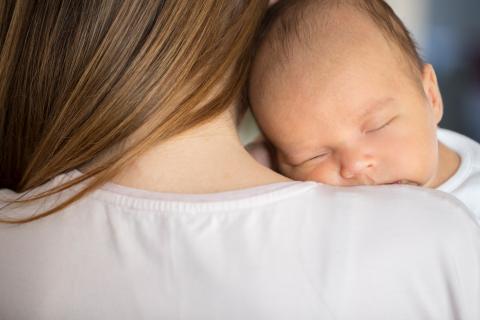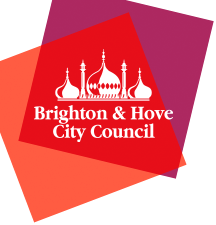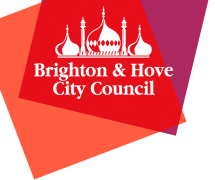
What is parent and child fostering?
A parent and child foster placement is a specialist type of fostering where a parent and child live with a foster carer(s). The parent will receive help and advice to safely care for their child, enabling the parent and child to stay together and to develop a strong relationship at a crucial developmental stage.
Who are the parents?
The parent is usually a young teenager mother, but it could also be a father, or sometimes a couple. It is also possible that the mother, father or couple will be older; in their 20’s, 30’s or 40’s. They will often have experienced poor parenting themselves, and may have had a difficult childhood or been in care. Some parents have a learning disability or mental health difficulties.
Why do they need help?
Often, the parent does not have the support of family and friends around them; they may have been a victim of domestic abuse and are likely to be vulnerable with low self-esteem and low confidence. They need a sensitive and non-judgemental environment in which they can focus on their baby’s health as well as their own.
What is the age of the child?
The child is normally a new born baby or a child aged 0-6 months. Sometimes children 6-12 months are placed and very occasionally sibling groups.
What is the foster carer’s role?
The foster carer’s role is to become a mentor and to build a trusting relationship with someone who needs help and encouragement to develop their skills as a parent. The foster carer should help, guide, nurture, and teach the parent how to bring their baby into the world and to learn to cope with parenthood. This may include helping the parent to understand nutrition, self-care, keeping appointments and learning how to breastfeed. Ultimately, it is the foster carer’s aim to help keep a family together by providing a stable home and a solid start. During this process, they will observe and record how the parent looks after the child, and share this recording with the parent and professionals working with them.
How is a parent and child placement different from other foster placements?
The key difference is that it is the parent who has responsibility for caring for the child, rather than the foster carer. Foster carers focus on providing the parent with supervision and guidance to give them the best chance of being able to live independently with their child. Foster carers need to learn when to step in and when to remain on the side-lines.
Where does the child sleep and who does the night feeds?
The baby usually sleeps in their parent’s room but sometimes the foster carer will be given guidance to care for the baby in their room, if there are significant concerns regarding how the parent is meeting the child's needs. Initially the foster carer will provide as much support as is needed; if the parent needs support with night feeds, the carer should be prepared to help them. Eventually, the parents are expected to do all the feeds themselves and over time, they should feel more confident.
What support does the foster carer receive?
Extensive training will be provided to ensure that the foster carer can feel confident in their role, including specialist training. In addition, new parent and child carers have an experienced parent and child carer as a buddy, and they are invited to join a support group for other carers of parent and child placements which can facilitate learning and serve as a platform for foster carers to support one another.
Foster carers who take parent and child placements receive an allowance and a fee, depending on the type of placement offered. For example, a newly approved parent and baby foster carer would receive £728 per week (the weekly total for a child under 4, plus the weekly total for a young person aged 12-18 – see payments table here).
How long do the parent and child stay?
A parent and child placement is finite in duration. There is a clear end point (usually 12 weeks) where the hope is for the parent and child to move on to independent living. The placement can be extended beyond 12 weeks if it is felt the parent needs additional time to learn how to meet the child's needs.
What are the outcomes of Parent and Child foster placements?
There are 2 principal outcomes to parent and child placements.
- If the parent has successfully gained the skills to care for their child, the parent and child move into the community, where they will continue to receive professional support. The child will continue to have a social worker until the parent is able to keep their child safe without any additional support.
- If we do not feel the parent has the capacity to meet the child's needs, we apply to court for separation, which means the baby would stay with the carer but the parent would have to move out. We would then look for a permanent home for the baby, either through the parent's extended family or, if this is not possible, adoption.
Who can be a parent and child foster carer?
To be a parent and child foster carer, the ability to build a relationship with a parent is key, which will include challenges at times, together with compassion, discretion, confidence, sensitivity and the ability to take on a 24-hour commitment. The ability to record and share your observations with parents is also essential. It is usually a role taken on by those who have already built up some experience of regular foster placements, but significant other professional experience can also be considered.
What are the rewards of being a parent and child foster carer?
The highly specific needs of a parent and their new-born child make this type of placement one of the most challenging but also ones of the most rewarding as well. As a foster carer, you have the opportunity to provide for the physical and emotional needs of not just one young life but two at the same time. Helping to keep a family together is one of the most fundamentally important contributions you could ever make.
***
If you’re thinking of fostering, take the first step today. There are so many children who need support. Call 01273 295444 to speak with a member of our friendly team Monday to Friday between 9am and 5pm, complete an online enquiry or e-mail us at fosteringrecruitment@brighton-hove.gov.uk.
Alternatively, please join us at one of our online information events. These informal sessions are a chance to meet experienced foster carers, understand the role of fostering and learn about the support you will receive.
Find out more about fostering by downloading our information booklet.
Please like our Facebook page and follow us on Twitter and Instagram – you will be able to keep up to date with our news, training events, school holiday activities and wonderful community spirit.

